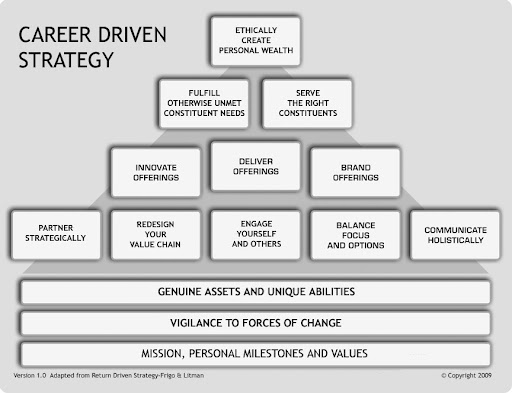Here’s how this “Marvel” turned his dorm room business into a tech empire!
| From the desk of Miles Everson: Hello! I hope you are all doing great and ready to welcome another great week! Let’s put the spotlight on one of our “Marketing Marvels.” Every Monday, we feature outstanding individuals from whom we can learn helpful marketing and business insights. For this article, we’ll talk about one of the most recognizable names in the tech world. Continue reading to learn how this “Marvel” built one of the world’s biggest PC manufacturing companies that’s also poised to capitalize on today’s AI boom! |
Here’s how this “Marvel” turned his dorm room business into a tech empire! Founded in 1999, Dell Inc. carved out a distinct identity for itself in the tech industry by making and selling PCs directly to customers. By 2001, the tech company became the largest PC vendor and remained a pure play hardware vendor until its entry into the information technology (IT) space through its acquisition of Perot Systems in 2008. Throughout the 2000s and for most of the 2010s until early 2020s, Dell was primarily associated with the manufacturing and selling of PCs, laptops, and other related hardware. … and despite being competitive throughout this period, the PC manufacturing was written off by industry observers because of cratering demands for PCs. While the slowdown in demand was true, it didn’t mean Dell was a sinking ship as it had silently positioned itself to capitalize on the next big thing: Artificial intelligence (AI). Starting in the mid-2010s, the tech giant positioned itself to address demand for scale-out architecture, converged infrastructure, and private cloud computing as the digital transformation powered by the Internet came into full swing. Coincidentally, this under-the-radar pivot positioned Dell to take advantage of the AI boom since it has the capability to provide the infrastructure needed to manage large data volumes, train AI models, and deploy AI applications. To understand how Dell became a global leader in PC manufacturing and how it positioned itself to become a key player in the AI boom, we need to take a look at its founder. His name? Michael Dell!
Born in 1965, Dell was raised in Texas and during his younger years, he exhibited a fascination in both business and electronics as his father was an orthodontist and his mother was a financial consultant and stockbroker. Then, in his early teens, he took on part-time jobs and invested his earnings in stocks and precious metals. It was also at this stage of his life when he took on a deep interest in electronics, as he bought one of the first Apple computers and disassembled it to learn about its inner workings and find out if he can reassemble it. In high school, he also took a job selling newspaper subscriptions. Come 1983, Dell took a pre-med program at the University of Texas and during his time, he started an informal business where he bought unsold IBM PCs at cost and added additional memory and disk drives, and sold them at prices 10% to 15% below retail. With minimal advertising, Dell was able to bring in a large customer base. Months after his venture boomed, he moved his business out of his dorm room and into an apartment from which he assembled PCs from scratch and sold them at lower prices. During this time, he realized that selling PCs directly to consumers could cut costs compared to retail. This direct sales approach also enabled Dell to form the belief that selling his products this way enabled him to understand customer needs and identify how to best meet those needs. By 1984, Dell decided to focus all of his efforts into his fledgling company and dropped out of college. Dell Inc. rose rapidly in the 1990s until the 2010s as it carved a place for itself in the consumer and enterprise segments of the PC market by selling desktops, laptops, and other related hardware. During this period of dominance, Dell doubled down on his build-to-order strategy and direct selling approach, which enabled him to to cut costs and build stronger customer relationships and faster response times to market demands. Once the 2010s rolled around, the PC market had matured and demand had started to crater due to the increased popularity of smartphones and tablets. To make sure that his company could thrive amidst these changes, Dell turned his company around with a series of moves that enabled it to become competitive again. Fast forward to 2025, Dell has successfully positioned his company to take advantage of the AI boom as it now provides the infrastructure and resources needed to train and deploy AI models and applications. That said, what exactly are Dell’s secrets to success? Here are some of the principles and traits that enabled him to “play nice but win” :
— Throughout his decades-long career, Dell not only built a successful multi-billion dollar business, but also succeeded in pulling off a pivot when his company needed it. His story and business career offers lots of insights and takeaways for aspiring business leaders and career professionals. With this success story taken into account, it’s no longer a surprise to consider Dell as a “Marvel” in his industry. His narrative is definitely something worth looking into, as it offers insights you can take inspiration from, especially if you’re itching to take your career and business to the next level! Hope you’ve found this week’s topic interesting and helpful. EXCITING NEWS AHEAD The world of work has shifted, and there’s no going back. The barriers to entry have never been lower for talented professionals to work independently, and today’s massive external workforce is hardly a pandemic-produced fad. Business owners can only survive in the new work landscape by partnering with this deep talent pool. With decades of experience in both small-business entrepreneurship and executive management at PwC, I truly believe that the future of work is independent. With that, I’m happy to share with you that my book, co-authored with Walter Scott Lamb, is now available on Amazon! Free Birds Revolution: The Future of Work & The Independent Mind This new bestseller is an essential read for both independent professionals and corporate executives. Here, we provide educational and practical guides to unpack the ever-growing workforce and offer you crucial ways to become a client of choice. Click on the link above to order your copy. Let this bestselling book help you future-proof your career and organization in the new world of work. Stay tuned for next Monday’s Marketing Marvels! In a world where trends come and go faster than you can scroll through your feed, some icons remain untouchable. Learn more about the magic of Mickey Mouse in next week’s article! |

Miles Everson
CEO of MBO Partners and former Global Advisory and Consulting CEO at PwC, Everson has worked with many of the world's largest and most prominent organizations, specializing in executive management. He helps companies balance growth, reduce risk, maximize return, and excel in strategic business priorities.
He is a sought-after public speaker and contributor and has been a case study for success from Harvard Business School.
Everson is a Certified Public Accountant, a member of the American Institute of Certified Public Accountants and Minnesota Society of Certified Public Accountants. He graduated from St. Cloud State University with a B.S. in Accounting.



